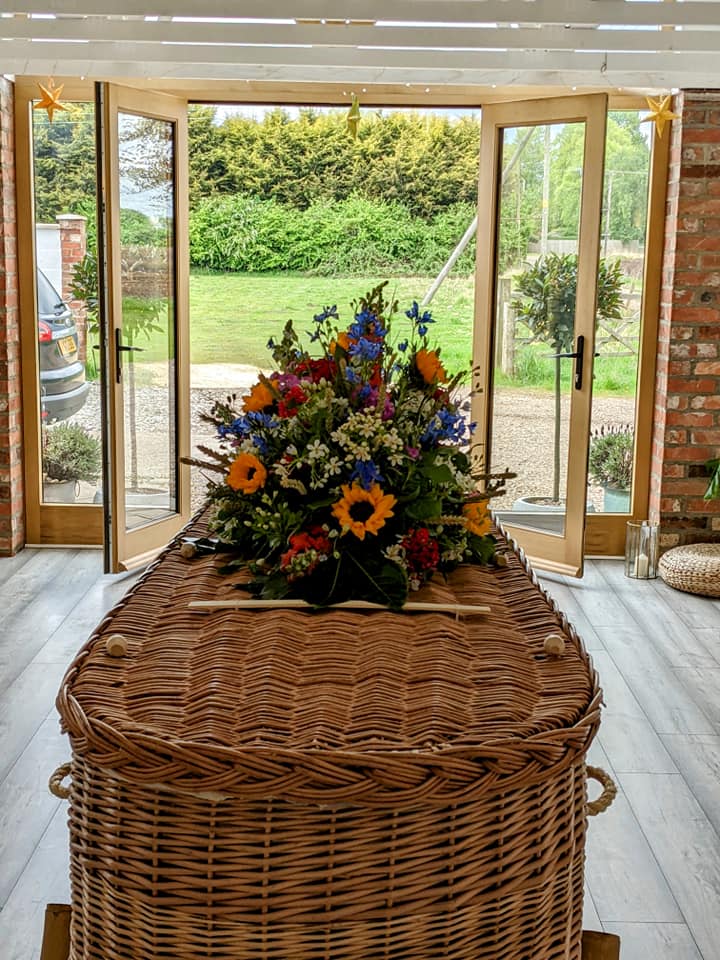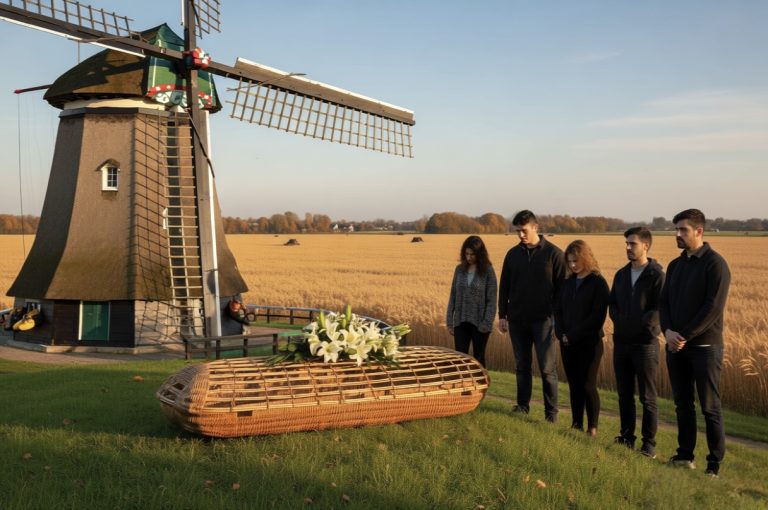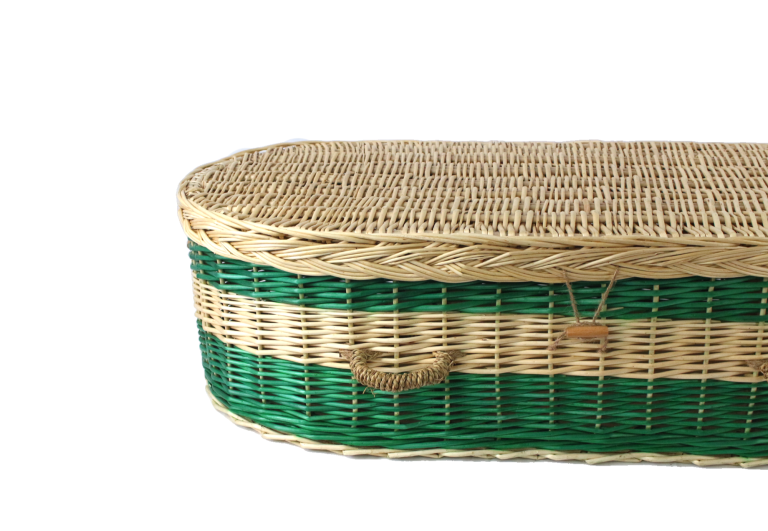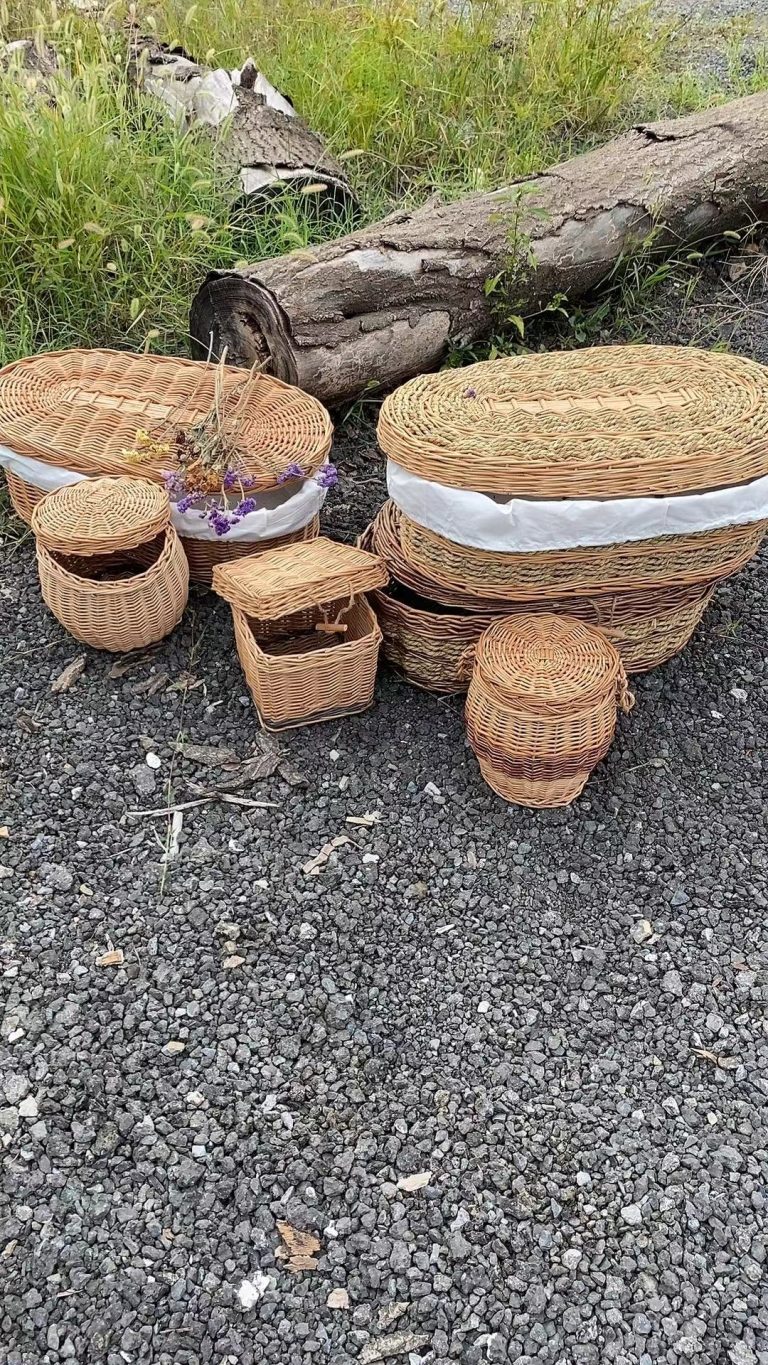In an era marked by climate urgency and circular economy imperatives, wicker caskets—crafted from natural materials like willow , bamboo, and rattan—have emerged as a transformative alternative to conventional burial containers. Among global manufacturers, China’s Shandong Linshu region stands as a paragon of sustainable production, combining ancient craftsmanship with modern ecological practices. This article examines the environmental advantages of wicker caskets and highlights how Linshu’s factories are pioneering a greener future for funeral industries worldwide.
1. Material Sustainability: Renewable and Biodegradable Excellence
Wicker caskets derive from fast-growing, renewable plants such as willow and bamboo, which thrive in Linshu’s fertile ecosystems. Unlike hardwood or metal caskets, which deplete forests and contribute to deforestation, willow canes regenerate annually without synthetic inputs like fertilizers or pesticides . Linshu’s farmers cultivate these plants using agroforestry principles, integrating them into riverbanks and marginal lands to combat erosion while sustaining biodiversity .
The biodegradability of wicker further underscores its eco-friendliness. At the end of their lifecycle, these caskets decompose naturally within 6–24 months, enriching soil with organic matter rather than leaching toxins . In contrast, traditional caskets made from steel or tropical hardwoods persist for centuries, releasing methane and contributing to landfill pollution .
2. Low-Carbon Production: Energy Efficiency and Waste Reduction
Linshu’s factories exemplify low-carbon manufacturing. The weaving process relies on manual labor and traditional techniques, eliminating energy-intensive machinery used in synthetic material production . For instance, hand-woven willow frames require no electricity beyond basic tools, reducing carbon footprints by up to 70% compared to automated production lines .
Water conservation is another hallmark. Closed-loop water systems recycle 90% of process water, a critical feature in drought-prone regions . Additionally, factories repurpose production waste—such as offcuts and dust—into biomass briquettes for heating, achieving 90% waste reduction .
3. Lifecycle Analysis: From Cradle to Grave
A lifecycle assessment reveals wicker caskets’ minimal environmental impact:
• Raw Material Sourcing: Linshu’s willow farms absorb 2.6 tons of CO₂ per hectare annually, offsetting emissions from production .
• Transportation: Lightweight wicker caskets (weighing 10–15 kg) reduce fuel consumption during global shipping by 30% compared to metal alternatives .
• End-of-Life: When cremated, wicker releases no toxic residues, aligning with EU Eco-label standards .
In contrast, synthetic caskets like PVC or polypropylene release carcinogenic dioxins when burned and persist in landfills for millennia .
4. Cultural and Economic Synergy
Linshu’s dominance stems from its dual role as an ecological steward and economic engine. The region produces 60% of China’s wicker exports, employing over 100,000 artisans who preserve intangible cultural heritage while earning 40% above the local average wage . This synergy transforms rural communities into global sustainability leaders, proving that ecological responsibility and profitability can coexist.
5. Global Recognition and Future Directions
Linshu’s innovations have earned certifications like ISO 9001 and EU Eco-label, attracting partnerships with brands in Europe and North America . Emerging trends, such as hybrid wicker-plantable urns and solar-powered cremation-compatible designs, further cement its leadership.
Conclusion
Wicker caskets from Shandong Linshu redefine eco-conscious burial practices, offering a model for industries seeking to balance tradition and sustainability. By prioritizing renewable materials, energy efficiency, and cultural preservation, Linshu’s factories illuminate a path toward a circular, low-carbon future—one where death becomes a force for environmental renewal. As global demand for sustainable alternatives rises, Linshu’s legacy of ecological stewardship will remain indispensable.
We are a factory supporting eco friendly green funeral(natural willow coffins\bamboo caskets and so on) .. for detail please contact us www.phoenixnestcoffins.com;
Phoenix Nest ( Shandong ) Crafts Co.,Ltd.
Whatsapp: +86-18265103836 (Whatsapp & Wechat & Tel)
Email: jason@phoenxinestcoffin.cn
#willow coffin#greencoffins#bamboocaskets#urns#naturalcoffins#chinafactory#scattertube#naturalburial#FuneralSupplies#cross#flowerbands#shrouds #carrierfuneral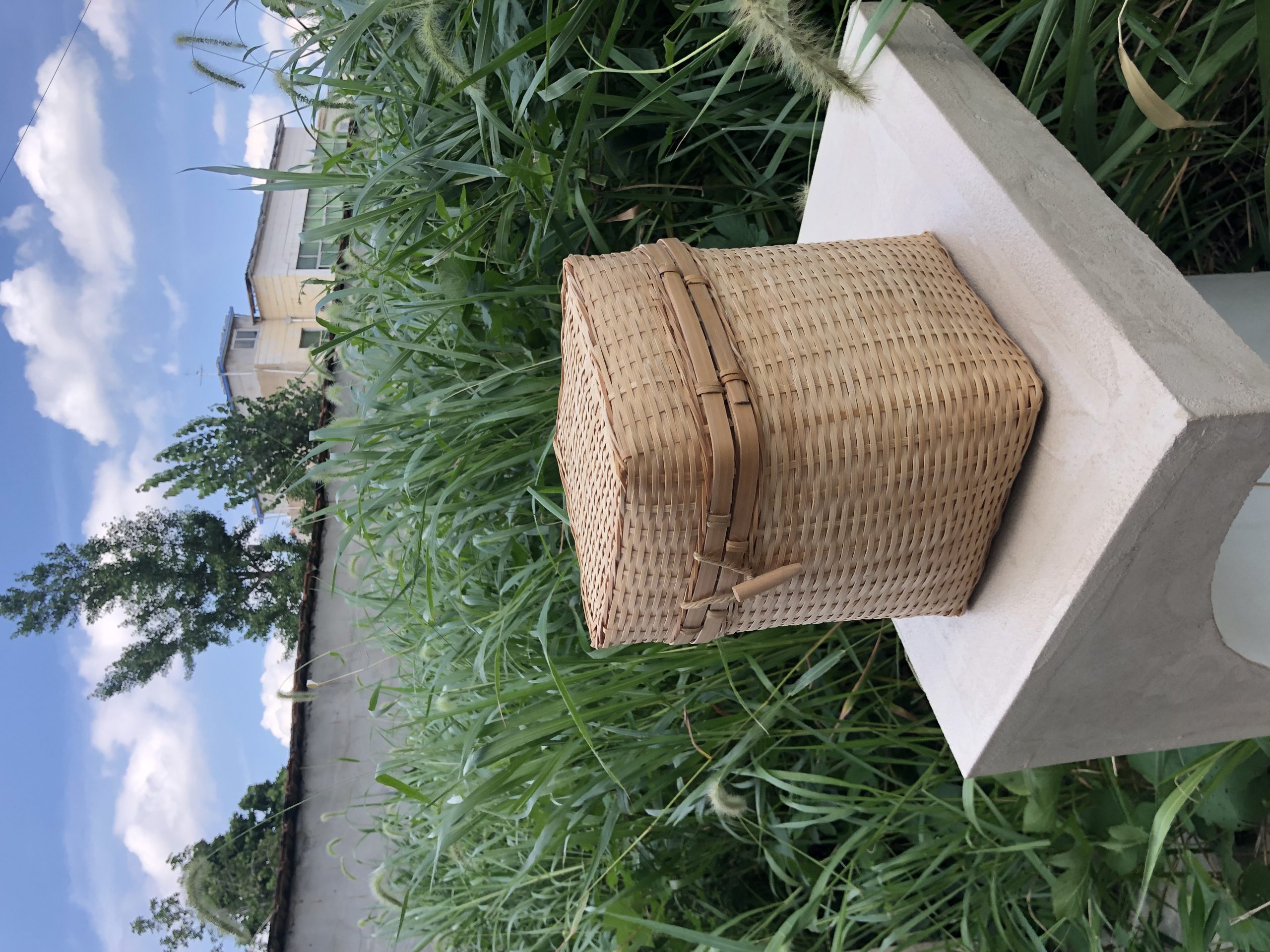 wicker coffins, woven from similar fibers, can fully decompose in a few years, leaving minimal residue and enriching soil with nutrients#phoenixnestcoffins #urnswithlove #caskets #memorial #love #neverforget #memories #family@everyone@followers
wicker coffins, woven from similar fibers, can fully decompose in a few years, leaving minimal residue and enriching soil with nutrients#phoenixnestcoffins #urnswithlove #caskets #memorial #love #neverforget #memories #family@everyone@followers

